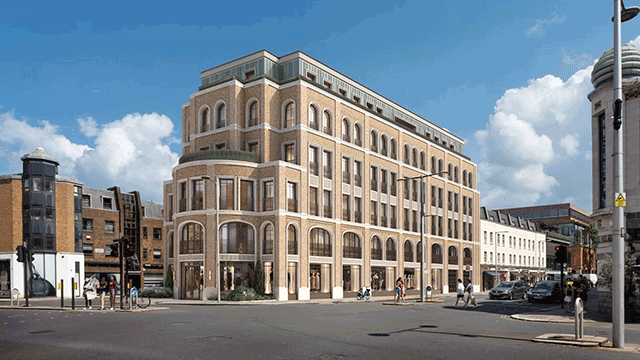A Woolwich householder who sold his property to make way for the Crossrail project today failed to convince the Court of Appeal that he lost out when the property was later offered to a unit of homebuilder Berkeley Homes.
Daniel Charlesworth, who was formerly a 999-year leasehold resident of a property in Cornwallis Road, Woolwich, London, claims that he should have been allowed to buy the land back after Crossrail decided it no longer needed it.
The case is one of a number of similar challenges going through the courts now that the Elizabeth Line, the new underground line that is part of the Crossrail project, has been cut though the capital.
It also examines the Crichel Down Rules, which govern what should be done when land that has been acquired by compulsory purchase turns out to be surplus to requirements.
Rule 7 of the rules, which according to today’s judgment “are no more than policy without the force of law”, state that if land becomes surplus, parties that it was purchased from should be given right of first refusal on it, unless the land was “immediately offered for sale before the negotiations for acquisition.”
According to the ruling, Berkeley Fifty-Five, a unit of Berkeley Homes, bought a large parcel of freehold land from the local authority in February 2011. That freehold contained Charlesworth’s leasehold property.
A few days after buying the freehold, Berkeley sold it to Crossrail. This, according to an earlier ruling, was to safeguard the company as the key developer in the area. Berkeley planned a housebuilding project around and over the line.
When part of the plot became surplus to requirements in 2017, Crossrail identified people with a “qualifying interest” in the land.
That meant people or companies who were bought out as part of the compulsory purchase.
Under the rules, those with a qualifying interest should be given right of first refusal on the land.
If one party with a qualifying interest exercises their right of first refusal, they can buy it at the market rate. If more than one exercises their right, the land gets sold on the open market.
Crossrail identified six parties with a qualifying interest, which included Charlesworth and Berkeley.
Both Charlesworth and Berkeley expressed an interest, which meant that the land was sold on the open market.
However, lawyers for Charlesworth argue that Berkeley didn’t have a qualifying interest. If that is the case, they say, Charlesworth was deprived of his right to buy the land before it was sold on the open market.
Charlesworth’s legal team argues that Berkeley’s sale of the land to Crossrail was not a sale made under compulsory acquisition. Berkeley had a “wider interest” in developing the land and had “actively lobbied” Crossrail to build a station in Woolwich.
In addition, the short timespan between Berkeley buying the land and selling it on to Crossrail suggests that there must have been an offer to sell the land to Crossrail before it was acquired.
However, in his ruling today Appeal Court judge Lord Justice Lewison said he found that part of the argument “difficult to understand”.
The fact that Berkeley may have offered the land to Crossrail before it acquired it doesn’t mean it is excluded using the Rule 7 of the Crichel Down Rules, he said.
That rule can logically come into force only if the land is offered to a party other than the one that acquires it, he said.
“Negotiations will typically begin with an offer,” his ruling said. “It follows that an offer for sale before those negotiations begin must be an offer to someone else. In short, it is a logical impossibility for negotiations between a landowner or a prospective landowner to take place before the negotiations referred to in Rule 7.”
He dismissed the appeal.
Daniel Charlesworth – and – Crossrail Ltd – and – Berkeley Fifty-Five Ltd
Court of Appeal (Patten LJ, Lewison LJ, Peter Jackson LJ) 3 July 2019










